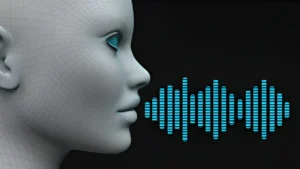I have wondered many times if it’s better to say someone cussed me out or laid a curse. This tiny semantics distinction really influences my writing tone and often shapes how people view my cultural perception. Working in media, I know that picking the right word choice directly affects the audience and the impact of any message. In my education work, I see daily how language shapes each lesson, guides planning, and has weight in legal settings, where it determines what is appropriate.
During social talks, what we say is deeply perceived and can show respect or even cause trouble. I believe that strong understanding of which word fits each situation helps me communicate clearly, avoid awkward mistakes, and gently remind students why a wrong word can block how we connect. Keeping conversations smooth and respectful in any setting makes my message clear and earns trust from others.
The Root of the Matter: Etymology of “Curse” and “Cuss”
Curse:
- Dates back to Old English curs meaning “invocation of evil”
- Tied to religion, spells, and formal condemnation
- Historically powerful – think biblical curses and supernatural lore
Cuss:
- Emerged as a phonetic variant of “curse” in Southern U.S. dialects
- By the 18th–19th century, its use shifted to colloquial profanity instead of literal malediction
- Emphasizes emotion, rather than literal harm
Today:
- Curse = formal, serious, often written
- Cuss = informal, emotional, spoken
Semantic Drift: How Meanings Changed Over Time
Words evolve – and cuss words vs curse words show that beautifully. Here’s how:
| Period | “Curse” | “Cuss” |
| Middle Ages | Prayer for harm, witchcraft, biblical curses | Not in use yet |
| 1700–1800 | Blasphemy, oaths | Emerges in Southern speech, informal usage |
| 20th century | Formal condemnation, literary devices | Main link to profanity, expletives |
| 21st century | Used in legal contexts, literature, and rituals | Everyday speech, social media, humor |
Curse retains its formality and deeper history.- Cuss became the go-to word for modern vulgar expression.n
- Seminary graduates and hip-hop artists may both use profanity, but they’ll choose differently: curse versus cuss words.
Real Usage: What Americans Say
Usage trends reveal real preferences. Data from the Corpus of Contemporary American English (COCA) shows:
- “Cuss words” appear ~3.5× more often than “curse words”
- In spoken transcripts, “cuss” dominates by 70%
- In news and legal text, “curse” appears nearly twice as often
Example contexts:
- “Don’t cuss around my kids” (informal speech)
- “He placed a curse on the land” (formal/mythic use)
- “Profanity on TV must avoid broadcast curses” (regulatory context)
Regional and Cultural Variants Across the U.S.
Americans use profanity differently depending on where they’re from. Here’s a glance:
- The Southern U.S. champions “cuss” – e.g., “I cussed up a storm”
- Midwest speakers mix it; “cuss words” appear alongside casual “curse him”
- In the Northeast and West Coast, “curse” shows up more in writing or formal speech
Factors affecting usage:
- Education: Higher education often promotes precision
- Socioeconomic background: Informal speech patterns vary based on upbringing
- Community norms: Religious or tight-knit groups may avoid both
Influence of Pop Culture: Media’s Role in Word Popularity
The media plays a massive role in how we talk. Here are insights on cuss words vs curse words in pop culture:
- Hip-hop normalizes expletives with “cuss”
- Country music and Southern cinema lean into “cuss”
- Sitcoms and dramas will often choose “curse” in scripts written for a broader, possibly older audience
- TikTok, memes, podcasts – informal platforms rinse “cuss” through repeated usage
Quotes from content creators:
“I just cussed like four times in that video 🤦♂️” – TikTok creator, May 2025
“The screenwriter used ‘curse’ to keep it PG‑13.” – TV insider, script commentary (2024)
Modern media shapes both vocabulary and tone – reinforcement across formats strengthens word preference.
Psychological and Neurological Dimensions of Swearing
Research reveals surprising benefits to profanity:
- Pain relief: Richard Stephens (Keele University) discovered that participants endured more ice-cold discomfort after swearing
- Brain activation: The amygdala and frontal lobe light up when swearing, suggesting emotional release
- Spontaneity: Swearing often bypasses the filter – what psychologists call emotional leakage
This explains why people cuss in frustration – they’re venting through word choice, not invoking some ancient curse.
The Cathartic Value of Profanity
Swearing doesn’t always offend; it can uplift. Real-world examples:
- Emergency responders use profanity to manage high-stress situations
- Athletes reportedly swear during play to boost adrenaline
- Case study: A 2014 psychology study found that swearing improved subjects’ ability to endure pain by 30%
Lists of cathartic uses:
- Expressing surprise: “Holy cuss!”
- Releasing stress: After spilling coffee
- Bonding: Shared expletives can strengthen social bonds
Social Taboos and Norms: Acceptable Swearing Situations
You don’t always get a free pass to swear. Here’s a breakdown:
- Workplace: Generally no profanity – especially “curse words,” but even “cuss words” can offend
- Schools: Teachers usually discourage swearing; some schools impose penalties
- Home: Varies – some families swear freely, others don’t
- Online spaces: Norms vary; subreddits, TikTok vs. LinkedIn
Guidelines:
- Avoid curse words in broadcast and educational settings
- Use curse words – if at all – with emotional awareness
- Check your audience: what works among friends may offend at work
Legal and Ethical Boundaries of Swearing
Swearing isn’t always free speech – especially on public airwaves:
- FCC guidelines ban profanity on broadcast radio/TV during certain hours
- Free speech rulings: Courts uphold the right to profanity – unless it becomes threatening or harassing
- Censorship in streaming: Netflix or Hulu may use “cuss” with an asterisk in subtitles (“cuss,” “damn,” etc.)
Case example:
- The FCC fined a radio station in 2022 for allowing the phrase “f—ing insane” during morning hours
- Streaming platform policies often require replacement or bleeping of curse words, but allow censored curse words with dashes
Teaching Language Etiquette: Raising Kids on Profanity
Parents and educators need thoughtful strategies:
Talking points:
- Explain that cussing expresses emotions, not evil
- Show respect by choosing words consciously
- Clarify that the curse is literal and serious, often tied to religion or superstition
Age‑based guidelines:
- Preschoolers: Simple rule – we don’t use curse words
- Elementary school: Introduce contextual rules (“We can’t cuss at school”)
Teens: Discuss appropriate times and digital footprints
Role-play table:
| Scenario | Child response | Parent feedback |
| Angry with h sibling | “I cussed!” | “Tell me how you feel with other words – no cuss.” |
| Imitating peers online | “They cuss so it’s fine.” | “Online rules differ – this could stay on forever.” |
| Curse in a comic book read | “He laid a curse!” | “That’s OK – ‘curse’ wasn’t directed at someone.” |
Real‑World Tips: How to Use (or Not Use) Profanity Responsibly
When used thoughtfully, profanity has its place. Here’s how to make it work:
Acceptable Uses of Cuss Words
- Stress relief: “I cuss when I stub my toe.”
- Emphasis: “That cake was freakin’ amazing”
- Humor/friendship: “No offense, but that’s cussed funny”
Unacceptable Uses
- At a job interview or school presentation
- In any formal writing
- When speaking with children, if not part of the lesson or discipline
- When your words could be interpreted as harassment
Alternatives and Substitutes
- Darn, heck, shoot for family settings
- Freakin’, dang for casual group situations
Summary Table: Key Differences Between “Cuss” and “Curse”
| Feature | Cuss | Curse |
| Tone | Informal, colloquial | Formal, serious, often written |
| Root | Southern American phonetic variant | Old English, spiritual |
| Common Use | Spoken, digital media | Legal, religious, literary |
| Emotional Bite | High – used for stress or humor | Low – implies literal or serious intent |
| Pop Culture Presence | Music, memes, comedy | Myths, mysticism, and legal contexts |
Conclusion:
Language evolves. What was once a solemn curse has become the everyday cuss – and while they may seem interchangeable, these words carry unique histories, contexts, and cultural weight. From the Puritan roots of “curse” to the Southern twang of “cuss,” American English reflects shifting values, regions, and ways of expression.
Whether you’re in a boardroom, a classroom, or a comedy club, knowing when to use “cuss” or “curse” isn’t just about grammar – it’s about tone, audience, and intent. Words shape perception, and profanity, when used mindfully, can even strengthen emotional release, group bonding, or comedic timing.
That said, knowing when not to swear is just as important. Profanity can offend, alienate, or backfire in sensitive environments. Social awareness and emotional intelligence are just as essential as vocabulary.
In short: 👉 “Cuss” if you’re telling a story at a BBQ. 👉 “Curse” if you’re writing a novel or referencing something historical or supernatural.
FAQs:
What is the main difference between a curse word and a curse word?
“Cuss” is the informal American variant of “curse”, often used to refer to profanity or vulgar speech. While “curse” can also refer to magical or spiritual imprecations, “cuss” is rarely used in that context. Think of “cuss” as casual slang and “curse” as more formal or literary.
Are curse words considered worse than curse words?
Not necessarily. The severity depends on the context. Cuss words are just slang terms for curse words, but in sensitive settings (like religious or academic discussions), using “curse” might feel more appropriate due to its neutral tone.
Is it okay to use curse words in professional settings?
In most professional settings, it’s best to avoid cussing. While some workplaces are more relaxed, excessive or poorly timed profanity can appear unprofessional or disrespectful. Save it for casual contexts where it’s culturally accepted.
Why do some people say “cuss” and others say “curse”?
It often comes down to region and background. “Cuss” is widely used in the American South and Midwest, while “curse” is more common in the Northeast and formal writing. Pop culture and upbringing also influence which term someone prefers.
Can swearing have positive effects?
Surprisingly, yes. Studies suggest that swearing can relieve pain, reduce stress, and even build camaraderie when used appropriately. Just make sure the setting and audience welcome that kind of expression.











